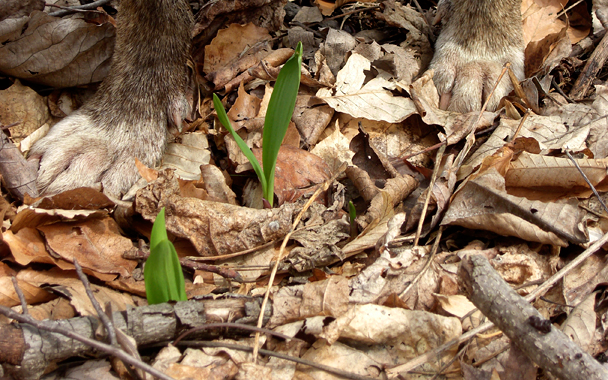Every year, spring starts with a whisper. Little wisps of green appear on an otherwise drab canvas. Then, before we know it, there’s no drab left and summer is screaming in full view. Well, we’re not there yet. But the whisper has suddenly become a murmur, and an onion-scented one at that. As we headed home with a bag full of foraged watercress, Elvis looked up at me, pausing, then bolted off the path and into the woods.
Dogs are preferred to pigs these days when it comes to hunting truffles. Pigs like to eat truffles (and foragers’ fingers), but dogs will happily let go of their fungal finds in exchange for a treat and a little affection. A good scratch behind the ears has more worth to a canine than a stinky old mushroom.
If there were truffles to be found in the woods of Pennsylvania, Elvis would have eagerly sniffed them out, but there are no truffles here. Instead, there’s another kind of woodland treasure: ramps. This dog, it seems, has a nose for them. I never would have spotted the baby ramps growing next to an old oak tree in the middle of the woods, but Elvis easily caught a whiff and lead me straight to them. These are the first of the season, leading the way for a soon-to-be full-on garlicky assault.
Ramps are wild leeks that grow along the east coast of the United States. They are prized all over, but especially in places like West Virginia, where annual ramp festivals are held throughout the month of April. The whole plant can be eaten and used like garlic or onion. Ramps are especially good when tossed with oil and roasted until their leaves are crisp, as Robert Pincus did last week.
I took a little bite from one of the leaves, and it filled my head with spring’s second coming. Elvis and I will be back to collect more watercress and these ramps when they are bigger and ready to harvest. For now, it’s watercress salad for me, and an extra bone for my buddy.




 Pinterest
Pinterest


